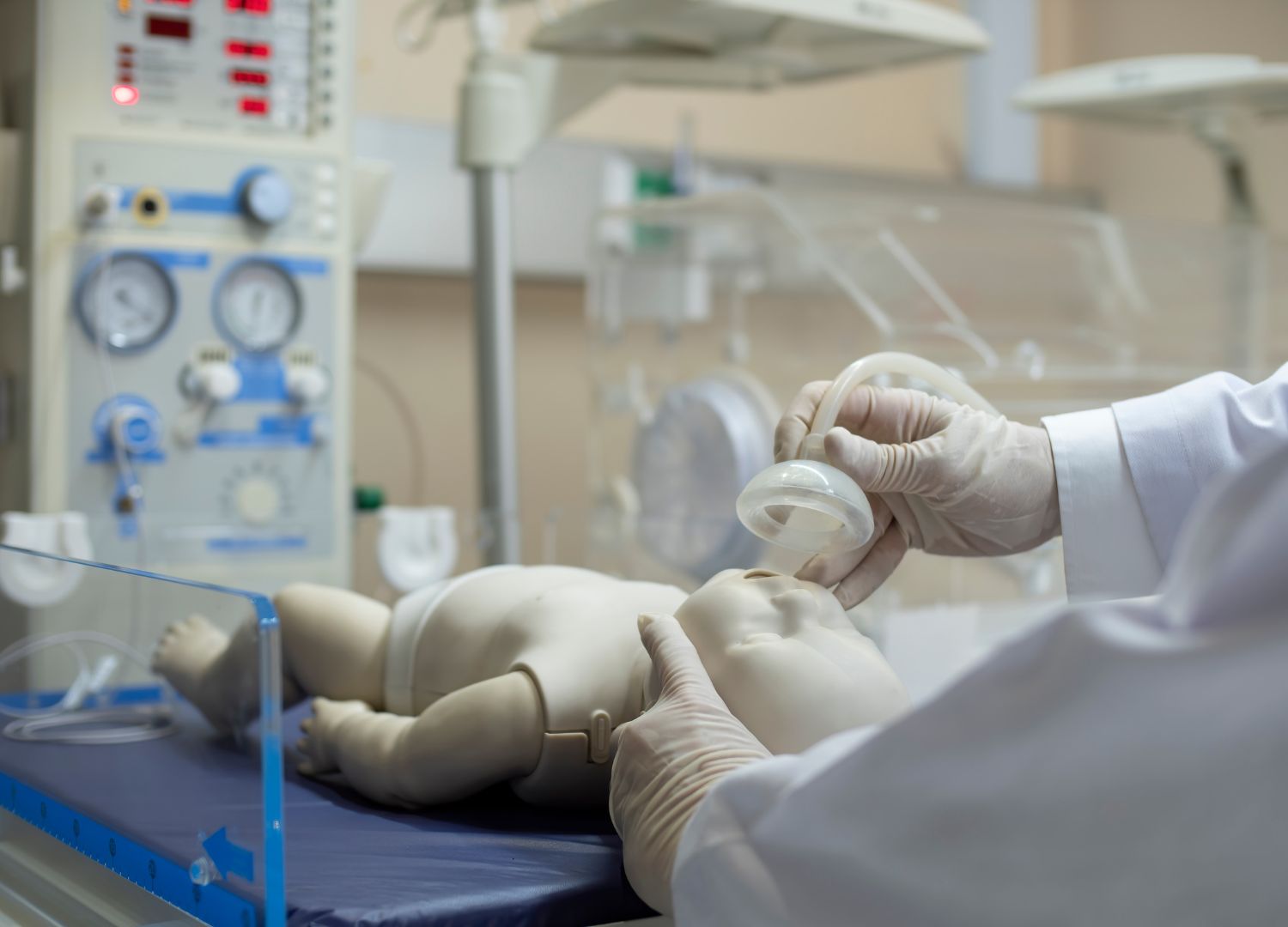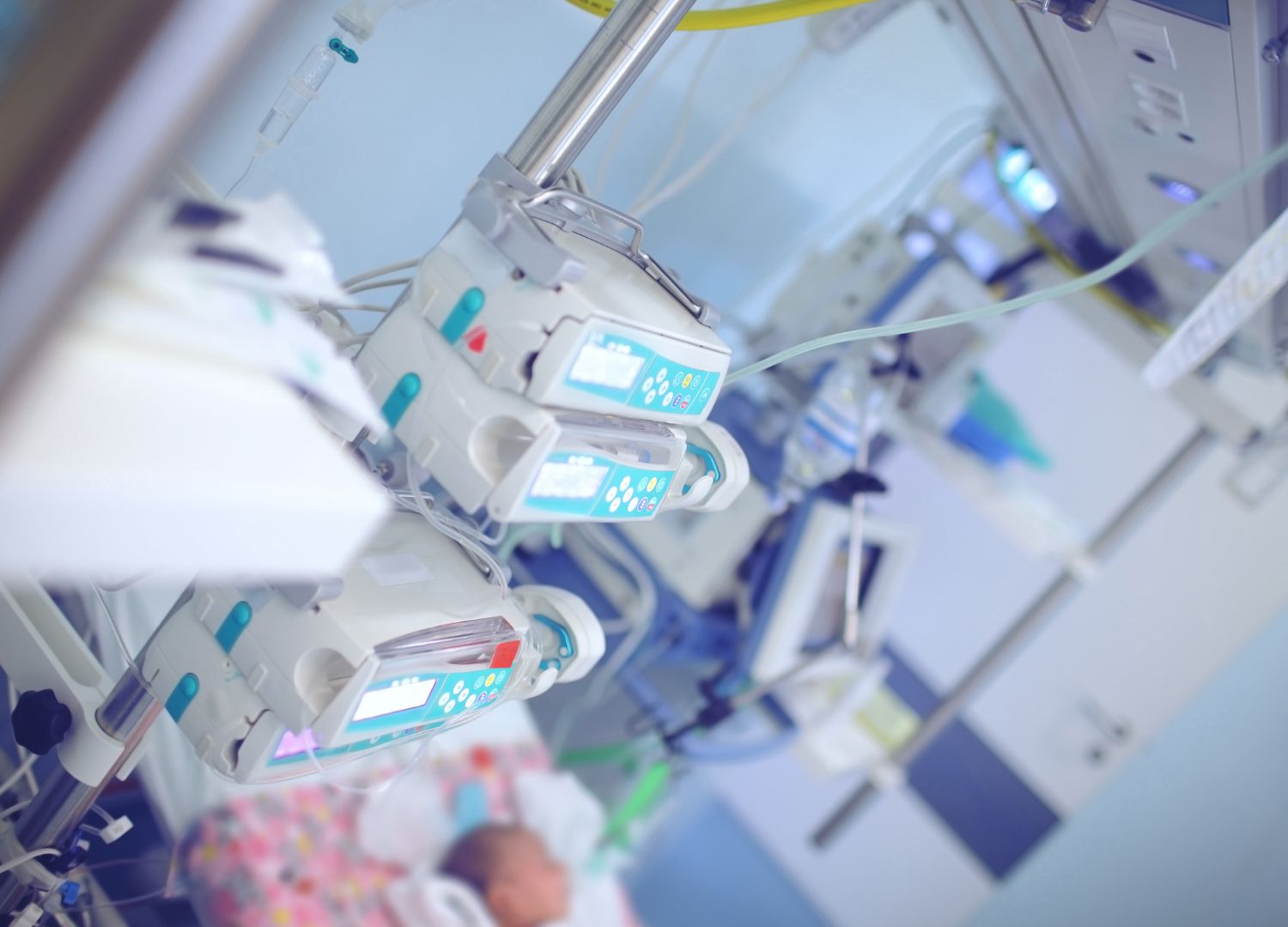How Long Is PALS Good For? A Comprehensive Guide
How Long Is PALS Good For? A Comprehensive Guide

by Greta Kviklyte
Life Saver, AMC
Co-authored by Kim Murray, RN, M.S.
posted on Aug 2, 2024, at 1:50 pm
Most emergency professionals, nurses, and first responders know the importance of maintaining their Basic Life Support (BLS) and Advanced Cardiac Life Support (ACLS) Certifications. PALS, or Pediatric Advanced Life Support certification, is a critical certification to ensure a child receives proper medical care in a life-threatening situation.
How long is PALS good for once you receive your assessment?
Your PALS certification remains effective for two years after earning the certification. Consider what else you need to know about PALS, including pretests, recertification, and how PALS saves lives.
We offer Online PALS Certification and Renewal
What Is PALS Certification? 
PALS certification is a specific certification that indicates the named party has been educated and passed the necessary training to provide cardiopulmonary emergency care to a child. PALS focuses specifically on providing essential care to an infant or a child that is critically ill.
PALS is more extensive and specific than BLS or ACLS, though all are important components to proper medical training for emergency situations. PALS is more advanced than first aid and CPR. The certification program offers both advanced and systemic skills and training for pediatric assessment.
The needs of a child or infant are often much different than those of adults, especially when there is a lack of communication. Data obtained through a study completed by researchers through the Children’s Hospital of Philadelphia and the University of Pennsylvania found that only about 10% of children who suffer an out-of-hospital cardiac arrest survive.
Core to these limited results is that many first responders may not know the proper procedures and requirements of children facing such events. In their study, they found that more errors occurred in pediatric scenarios than in adult patient care. The study notes, rightfully, that children are not just “small adults” and therefore need specialized care. PALS certification aims to provide an opportunity to ensure children receive that level of care.
Who Should Get PALS Certification?
PALS certification is beneficial to anyone who may provide care to a child in a critical medical situation. This includes emergency responders, ICU professionals, ER professionals, pediatric care providers, and others. If you are asking how long is PALS good for, you probably have your certification, but still need to know what to expect.
What Does PALS Certification Teach?
Upon completion of PALS education, students should be able to treat pediatric patients based on their assessment, including providing effective resuscitation, managing team dynamics of care, and providing comprehensive care as the child requires.
The PALS Certification course is robust, including a wide range of skills based on the specific needs of infants and children in critical, cardiac-related events. Some of those topics include:
- Recognition of need: Fast recognition of the child’s needs and interventions to prevent cardiac arrest as well as respiratory arrest in pediatric patients
- Assessment: A systemic approach to pediatric assessment, which includes initial impression, as well as both primary and secondary assessments, and all necessary or potential diagnostic testing
- Communication strategies: PALS courses teach a significant amount of communication and team dynamics management to ensure each person understands the key tasks involved in their role in pediatric resuscitation.
- Intervention strategies for children: The specific interventions for children and infants with circulatory or respiratory emergencies, including hands-on support for providing care that often differs from similar care provided to adult patients
- CPR: Providers learn effective cardiopulmonary resuscitation strategies for infants and children
- Respiratory management: The course includes effective respiratory management strategies used within ER or ICU environments
- Post-resuscitation management: Practices and strategies for ensuring post-resuscitation management of care for the patient
- Monitoring: Selection and use of effective cardiorespiratory monitoring equipment designed for children and infants
- Rapid capsular access: Patients also learn rapid capsular access to provide fluid and medications to pediatric patients
- Skill training: This includes effective respiratory management, defibrillation, intraosseous access, effective cardiopulmonary resuscitation, and fluid administration
Patients obtaining PALS certification must meet the requirements of the curriculum. PALS certification, according to the International Liaison Committee on Resuscitation, is necessary knowledge and skills to maintain the life of critically ill children and infants and, as a result, to improve clinical outcomes.
How Long Is PALS Good For After Initial Certification?
Once you obtain your PALS certification, it is good for two years. After completion of the necessary certification, you receive a card that includes your identifying information, the completion of your PALS certification, and a date that the certification expires. Once you learn how long PALS is good for, make a note about renewing it over time as needed.
After your PALS certification expires, you will no longer have a valid certification, meaning you cannot claim that you have it, and if your employer requires that you maintain it, you will no longer meet this requirement. Be sure to check how long is PALS good for with your employer if their requirements are different.
You Can Renew Your PALS Certification
If you just learned how long PALS is good for and are worried about your certification expiring, the process for renewing it is easy to do. Recertification of PALS is necessary. It enables you to ensure your skills are the most up-to-date they can be and allows you to receive updated information about any procedural or guideline changes that have developed in the previous two years.
Most often, recertification courses are less intense than the initial educational process, and you are likely to build new skills. They are well worth taking not just to meet employer requirements but also to enhance your working knowledge of providing pediatric advanced life support to those in need.
You Do Not Have to Take the Original Certification Course Again
Once you complete your initial course, you do not have to take the same initial course again to renew your PALS certification. A recertification course, when needed, is necessary, and that means you will spend less and get more hands-on support for topics that are relevant to you as a skilled provider.
You can take a PALS recertification course at any time, even if your current certificate has expired. You can take our program even if you completed your initial PALS certification through anther provider. The recerifification will remain in place for another two years.
Can You Complete Your PALS Certification Online?
Advanced Medical Certification offers a comprehensive PALS course and certification preparation process designed to be flexible and time-efficient without any deviation from providing critical, life-saving information to first responders. This online program provides you with the information, guidance, and comprehensive education you need to do well on your team.
The online PALS certification is thorough and reliable. It includes the same content and quality of information that is found in classroom certification, but is completed online.
Once you complete the educational requirements of the PALS course, you can then complete the certification test. To earn your certification, you must:
- Participate in a classroom course
- Complete all learning stations required
- Take and pass the written exam (requires an 84% or higher score)
- Complete skills tests including 1- and 2-rescuer child BLS and pass
- Perform well in 2 PALS core case scenarios acting as the team leader in both respiratory and cardiac events
There is quite a bit to learn to pass your PALS exam and earn certification, but doing so can provide you with the education and training you need to provide this life saving skill.
How Do You Prepare for the PALS Course?
To earn PALS certification, you must be knowledgeable about the specific care need to meet critically ill infant’s and children’s needs. This requires a different skillset from what you may already have for BLS skills.
To prepare for your PALS exam, our PALS handbook provides you with all of the information you need to learn efficiently. You can use a digital or print version and utilize it to gain the knowledge and skills necessary to work through this course.
We also recommend taking the PALS pretest. This practice test can help you gauge your knowledge now and through the course to ensure you are ready for the certification process. This PALS self assessment provides you with information about what you may need to learn a bit more about to ensure you are ready to take this test.
Why Is PALS Certification and PALS Recertification So Important?
PALS certification is critically important to life-saving efforts for children. Children and infants respond differently to emergency situations than adults do, and that difference can be critical in life-saving efforts. Some of the most notable differences between children and adults include the following:
- Heart rhythms
- Airway management methods
- Various drugs interact in different ways in children and infants
- Cardiac presentation in children and infants presents differently than in adults
Because of these and other differences, there is a high demand for individuals who have extensive knowledge of infant and children critical care needs. Having your PALS certification provides a way for you to efficiently and effectively provide life-saving measures to children in critical need.
Now that you know how long is PALS good for, you can start on the path to obtaining your certification or, if you already have it, you can renew it with our services today. At Advanced Medical Certification, we offer exceptional resources and tools to help you do well as you work to change the lives of children.
What To Do Now: Takeaways
Ensure your skills are up-to-date as a medical professional who may provide critical care to infants or children by obtaining your PALS certification. Whether you need to renew your certification or are pursuing it for the first time, Advanced Medical Certification offers comprehensive courses and testing to help you succeed.
Take the next step in your career and start your PALS Certification Now!
FAQs
Can I earn AMA Category 1 Credits with PALS Certification?
Depending on the situation, youc an earn up to 8 AMA Category 1 Credits through our program. Our program hsas been reviewed by the Postgraduate Institute for Medicine (PIM), which is an accredited provider. This organization has reviewed our PALS certification course and has approved it for AMA Category 1 credits.
Who creates the PALS courses?
At Advanced Medical Certification, our PALS course is created by Board Certified Physicians. These professionals and our team adhere to the most up-to-date ILCOR Standards and Guidelines. Additionally, these courses are designed to meet the Joint Commission compliance requirements. You can trust that the education you are getting through our PALS course is effective, highly accurate, and up-to-date to prepare you for the type and level of care you need to provide.
How long is PALS Good for when I renew my certification?
Your initial certification remains in effect for two years. Once that two years is up, you will need to complete recertification through a secondary, up to date course. Once you complete that course and earn your recertification, your certificate remains in effect for another two years. After that point, you will again need to recertify. Recertification is an important component of PALS since it enables individuals to maintain the most up to date knowledge of critical life-saving skills.
I am an ACLS-certified first responder. Do I need to take the PALS Certification?
PALS certification is recommended for anyone who could provide emergency medical care to a critically ill infant or child. That includes first responders. It is important to know your state’s specific laws on whether PALS is a requirement for the position you are in. Local, state, and regional organizations may require you to maintain this education. Also, note that your employer may require that you maintain your PALS certification.
How do I receive my PALS Certification card once I complete my exam?
There is no delay in this process. Once you complete your exam and all coursework, you can then take your PALS certification exam. Once you pass with an 84% or higher, and meet all other requirements, you can then receive your PALS certification card. It can be provided to you in a digital format that you can use right away.
You will also receive a printed version of your card in the mail, typically within three to five business days. The same process applies to those who are recertifying their PALS certification.
How long is PALS good for if I haven’t had my certification in some time?
If you took your PALS certification course and obtained your certification at any time, you can recertify through the recertification courses available. However, remember the importance of this education and information. If it has been a long time, and you are not sure that you will remember the intricate details of providing care to critically ill children and infants, taking the certification course from the beginning could be beneficial to you and help you pass your certification. Consider taking the PALS precourse self-assessment to see where your skills are right now.



